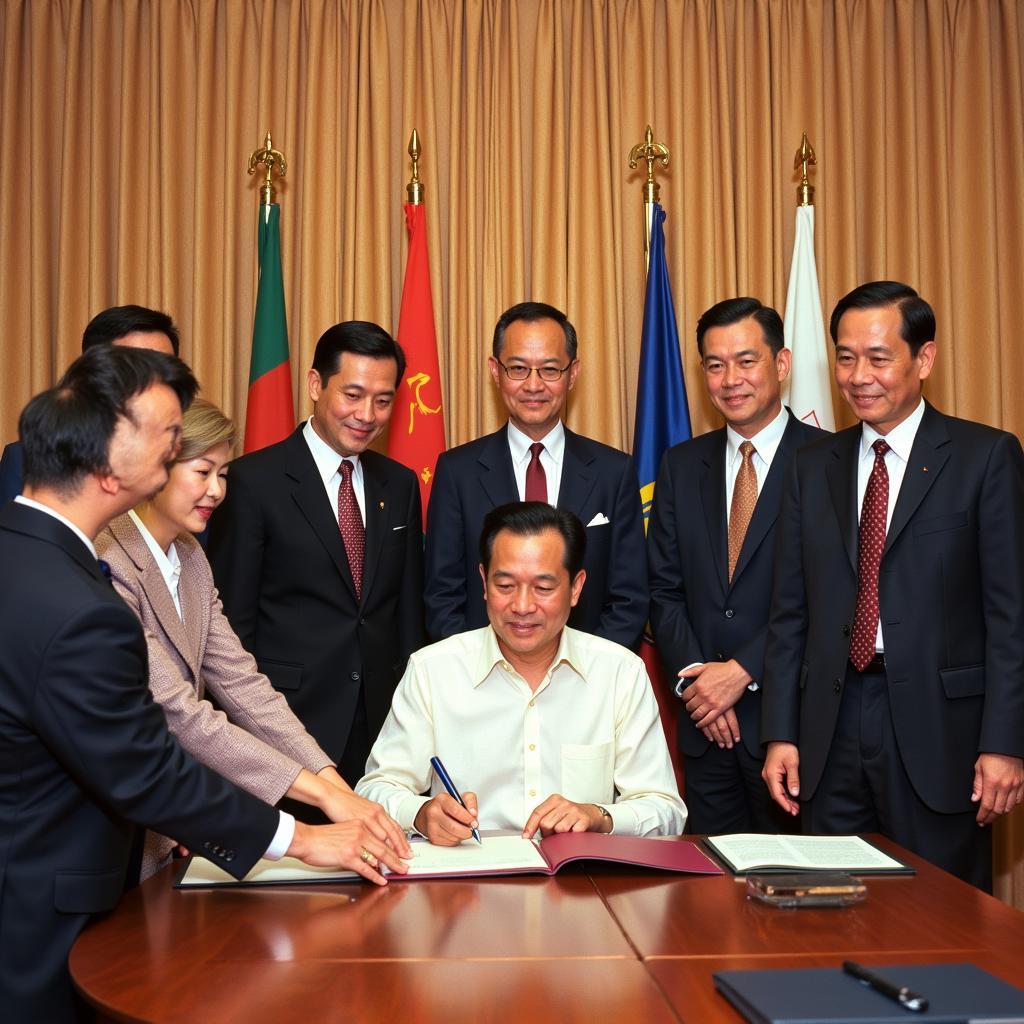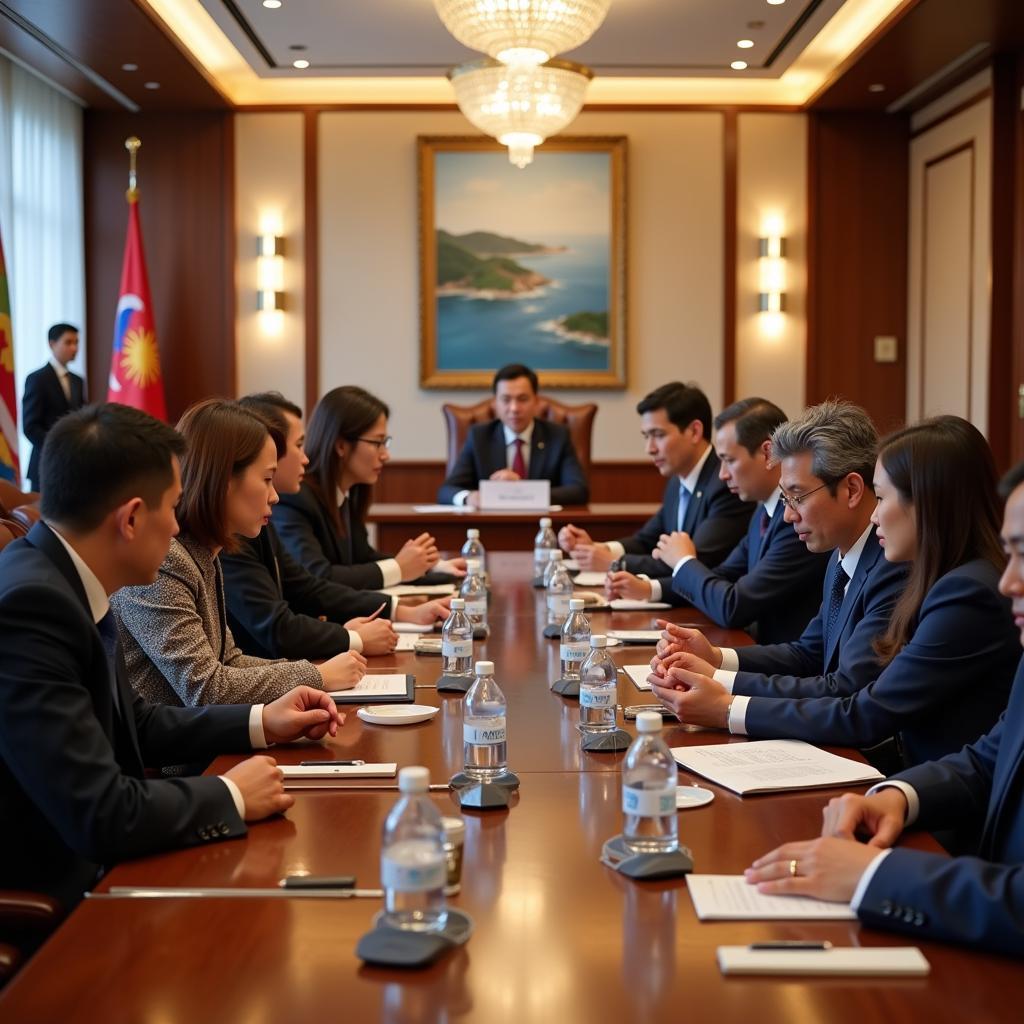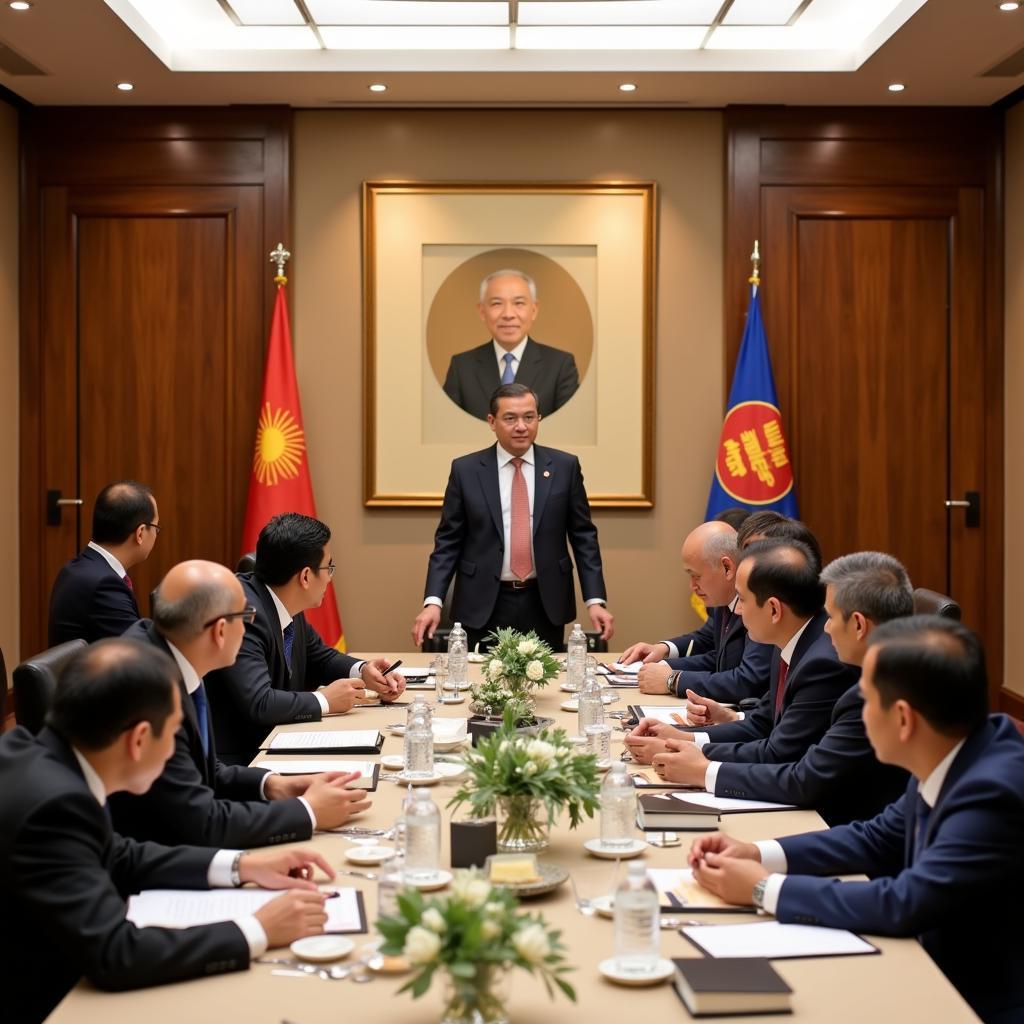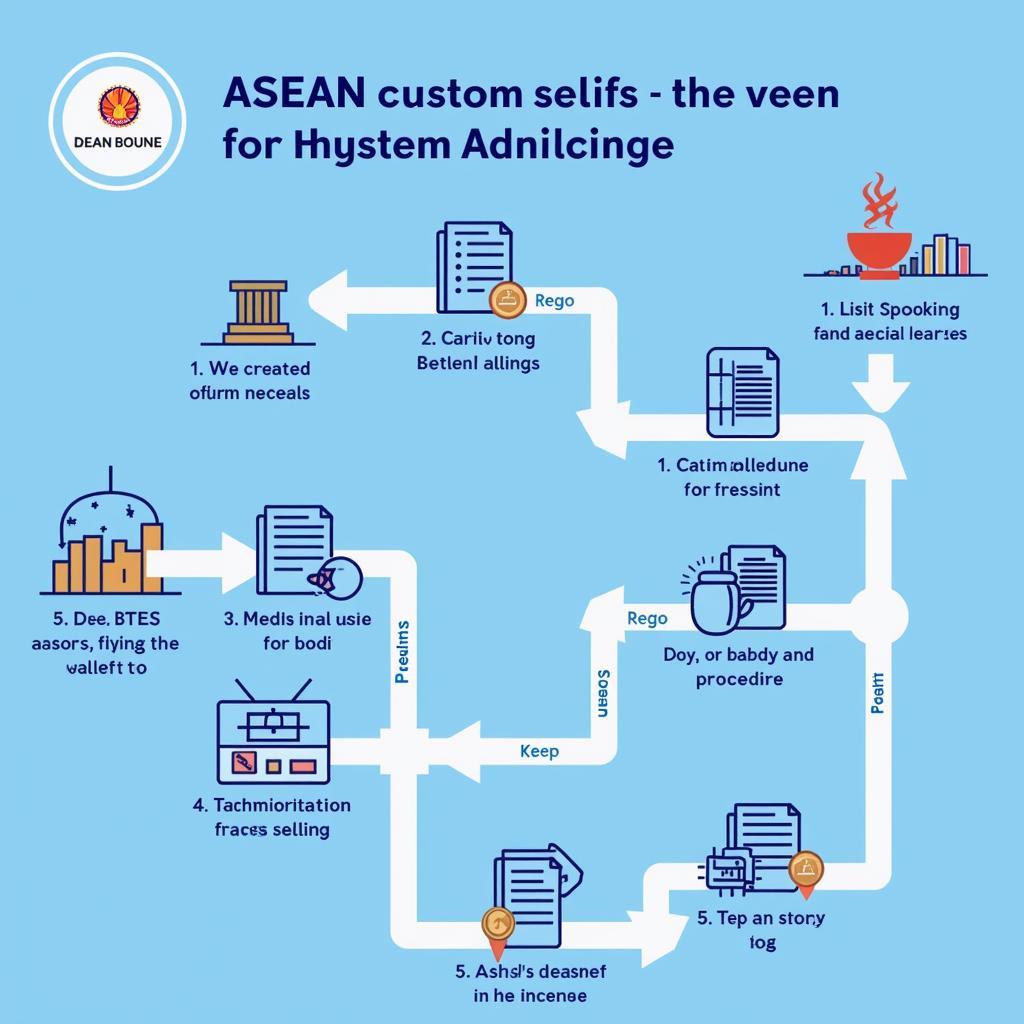Asean And Multilateralism are intrinsically linked. The Association of Southeast Asian Nations (ASEAN) has, since its inception, championed multilateral cooperation as a core principle of its existence, shaping its approach to regional and global affairs. This commitment has been crucial for maintaining peace, promoting economic growth, and fostering social development within Southeast Asia and beyond.
Multilateralism, at its core, is about cooperation among multiple states. For ASEAN, this translates to a complex web of relationships, not only between its member states but also with external partners across the globe. This approach has allowed ASEAN to navigate the often-turbulent waters of international politics, ensuring its members have a voice on the world stage. This engagement with multilateralism is not merely a matter of choice, but rather a necessity for a region as diverse and dynamic as Southeast Asia. The benefits are clear: enhanced security, increased trade, and greater cultural exchange, all contributing to a more stable and prosperous ASEAN.
The Evolution of ASEAN’s Multilateral Approach
ASEAN’s approach to multilateralism has evolved significantly since its founding in 1967. Initially focused on regional cooperation and resolving internal disputes, ASEAN has gradually expanded its engagement with external partners and international organizations. This shift reflects the growing interconnectedness of the global landscape and the recognition that regional challenges often require global solutions.
Early Stages: Building Trust and Cooperation
The early years of ASEAN were primarily focused on building trust and cooperation among its member states. Following the tumultuous period of post-colonial conflicts and Cold War tensions, ASEAN’s founding fathers recognized the importance of establishing a platform for dialogue and collaboration. This initial phase of multilateralism within ASEAN laid the foundation for future engagements with the wider world.
 ASEAN's Early Multilateralism and Cooperation
ASEAN's Early Multilateralism and Cooperation
Expanding Horizons: Engaging with External Partners
As ASEAN matured, its multilateral engagements extended beyond the region. Establishing dialogues with key global players like the European Union, as seen in ASEAN and EU, marked a significant step in ASEAN’s multilateral journey. These partnerships broadened ASEAN’s influence on the international stage and provided avenues for economic and political cooperation on a larger scale.
“ASEAN’s strategic partnerships are crucial for its continued growth and stability,” says Dr. Maria Lourdes Sereno, former Chief Justice of the Supreme Court of the Philippines. “These collaborations provide a framework for addressing shared challenges and promoting mutual interests.”
Addressing Global Challenges Through Multilateralism
Today, ASEAN actively participates in various multilateral fora, addressing global challenges such as climate change, terrorism, and pandemics. This proactive approach reflects ASEAN’s commitment to contributing to a more stable and secure world order. The 51st ASEAN Ministerial Meeting 2018 is a prime example of this engagement.
 ASEAN Addressing Global Challenges in Multilateral Forums
ASEAN Addressing Global Challenges in Multilateral Forums
The Benefits of ASEAN’s Multilateral Approach
ASEAN’s commitment to multilateralism has yielded significant benefits for the region.
- Enhanced Security: By fostering dialogue and cooperation, ASEAN has mitigated regional conflicts and promoted peaceful resolutions.
- Economic Growth: Multilateral trade agreements have stimulated economic growth and facilitated regional integration. The 5th ASEAN-India Business Summit illustrates the potential for economic partnerships.
- Social Development: Collaboration on issues such as education, healthcare, and poverty reduction has contributed to social progress.
- Increased Influence: ASEAN’s active participation in international fora has amplified its voice and influence on global issues. The ASEAN APEC Summit 2015 showcased this regional influence on a global platform.
“Multilateralism is not just a strategy for ASEAN, it is a necessity,” observes Professor Kishore Mahbubani, a renowned Singaporean diplomat and scholar. “It allows the region to leverage its collective strength to address challenges and seize opportunities.”
The Future of ASEAN and Multilateralism
What does the future hold for ASEAN and multilateralism? As the global landscape continues to evolve, ASEAN’s commitment to multilateralism will be even more critical. The region faces new and complex challenges, including navigating great power rivalry, addressing the impacts of climate change, and managing the complexities of a rapidly changing global economy.
ASEAN’s relationship with New Zealand, explored in ASEAN New Zealand, exemplifies the diverse partnerships ASEAN cultivates to navigate the complexities of international relations. These partnerships will continue to be essential for ASEAN’s future success. By upholding its core principles of dialogue, cooperation, and consensus-building, ASEAN is well-positioned to navigate these challenges and contribute to a more peaceful and prosperous world.
In conclusion, ASEAN and multilateralism are inextricably linked. The region’s embrace of multilateral cooperation has been instrumental in its journey towards stability, prosperity, and global influence. As ASEAN navigates the challenges and opportunities of the 21st century, its commitment to multilateralism will remain a cornerstone of its success.
FAQ
- What is multilateralism in the context of ASEAN?
- How has ASEAN’s approach to multilateralism evolved?
- What are the key benefits of ASEAN’s multilateral approach?
- What are the challenges to ASEAN’s multilateralism?
- How does ASEAN’s multilateral approach contribute to regional stability?
- What are some examples of ASEAN’s multilateral engagements?
- What is the future of ASEAN and multilateralism?
For further information on ASEAN and its multilateral engagements, please explore other articles on our website.
Need help or more information? Contact us 24/7: Phone: 0369020373, Email: [email protected], or visit us at: Thôn Ngọc Liễn, Hiệp Hòa, Bắc Giang, Việt Nam. Our dedicated customer support team is always ready to assist.


